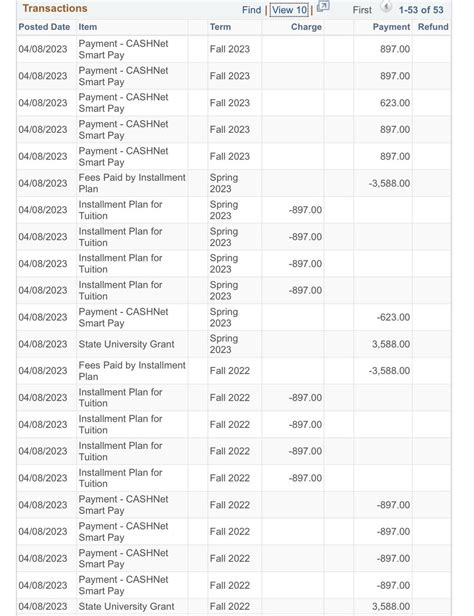Introduction
Are you a high-achieving student facing financial barriers to pursuing your higher education? The State University Grant (SUG) program at California State University, Long Beach (CSULB) offers financial assistance to eligible students to make their dream of a college degree a reality. This article provides a comprehensive guide to the CSULB SUG program, covering its eligibility criteria, application process, award amounts, and more.

What is the State University Grant (SUG)?
The SUG program is a state-funded financial aid program that provides grants to eligible students attending public universities in California. The program is designed to help students from low-income families cover the costs of tuition, fees, and other educational expenses.
Eligibility Criteria for CSULB SUG
To be eligible for the CSULB SUG program, you must meet the following criteria:
- Be a California resident
- Be a U.S. citizen, permanent resident, or eligible noncitizen
- Have a high school diploma or equivalent
- Be enrolled at least half-time (6 units) in an undergraduate degree program at CSULB
- Demonstrate financial need as determined by the Free Application for Federal Student Aid (FAFSA)
- Not have exceeded the maximum time frame for completion of your degree program
Application Process for CSULB SUG
To apply for the CSULB SUG program, you must complete the following steps:
- Submit the FAFSA by the March 2nd deadline
- Indicate that you are interested in the SUG program on the FAFSA
- Submit all required supporting documentation to the CSULB Financial Aid Office
Award Amounts for CSULB SUG
The amount of the SUG award varies depending on the student’s financial need and the availability of funds. The maximum award amount for the 2023-2024 academic year is $5,775.
How to Use the SUG Award
The SUG award can be used to cover the following educational expenses:
- Tuition and fees
- Books and supplies
- Transportation
- Housing
- Food
Strategies for Maximizing Your CSULB SUG Award
- Apply early: The FAFSA deadline is March 2nd, so it’s important to submit your application as soon as possible.
- Be accurate: Make sure to fill out the FAFSA carefully and provide all required documentation.
- Meet the deadlines: Submit all required supporting documentation to the CSULB Financial Aid Office by the deadlines.
- Renew your application: You must reapply for the SUG program each year.
Common Questions and Answers about CSULB SUG
Q: How do I know if I’m eligible for the SUG program?
A: You can check your eligibility by completing the FAFSA and submitting it to the CSULB Financial Aid Office.
Q: What is the maximum amount of the SUG award?
A: The maximum award amount for the 2023-2024 academic year is $5,775.
Q: How do I use the SUG award?
A: The SUG award can be used to cover educational expenses such as tuition, fees, books, and supplies.
Q: How can I increase my chances of receiving a SUG award?
A: You can increase your chances by applying early, being accurate on your FAFSA, meeting the deadlines, and renewing your application each year.
Q: What happens if I don’t receive a SUG award?
A: If you don’t receive a SUG award, you should explore other financial aid options such as scholarships, loans, and work-study programs.
Q: How do I contact the CSULB Financial Aid Office?
A: You can contact the CSULB Financial Aid Office at (562) 985-5411 or by email at [email protected].
Conclusion
The CSULB SUG program provides valuable financial assistance to eligible students facing financial barriers to higher education. By following the steps outlined in this guide, you can increase your chances of receiving a SUG award and making your dream of a college degree a reality.
